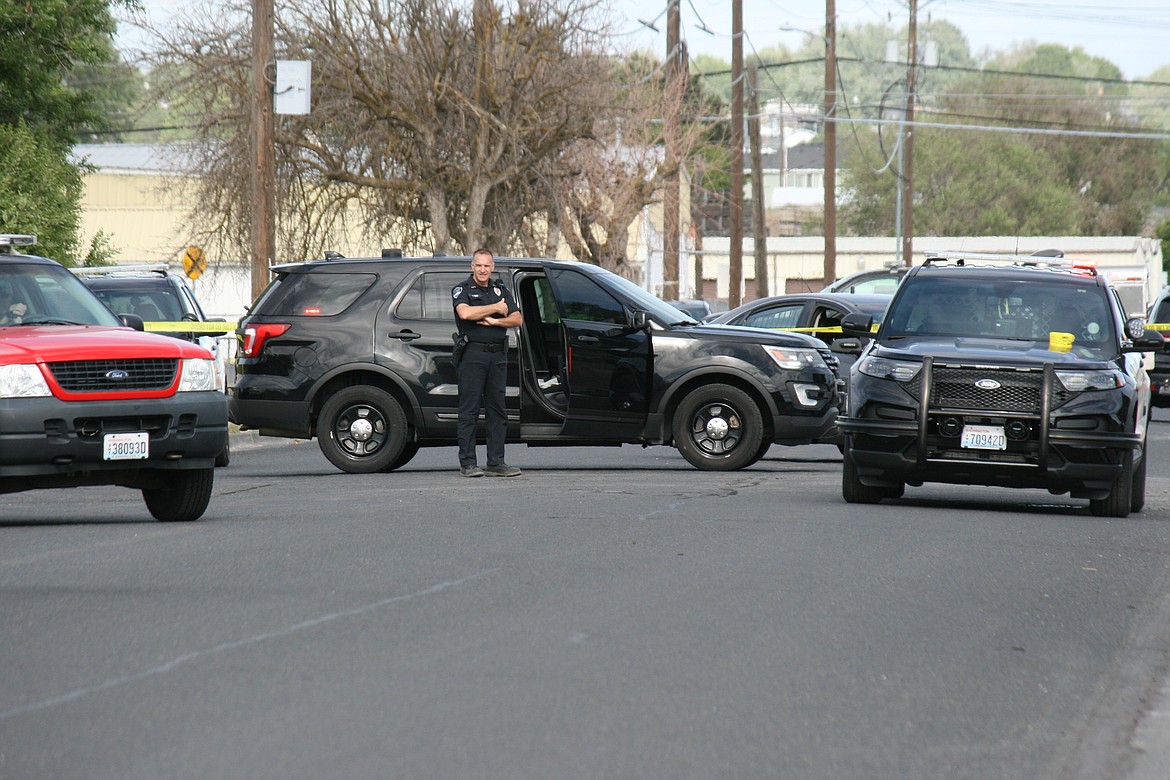Who can respond? New use-of-force law changes police work in Moses Lake; police chief warns of limitations
“This was an unprecedented year in the legislature when it comes to police reform,” said Moses Lake Police Chief Kevin Fuhr at a recent city council meeting.
While a number of bills were passed regarding police this year, the main one of interest was House Bill 1310, or state Rep. Jesse Johnson’s use of force bill. It was signed by Gov. Jay Inslee on May 18 and goes into effect July 25 of this year.
The bill requires police to have probable cause before using force, as opposed to reasonable suspicion.
“This is changing completely the way we’ve responded to some of these calls … and there will be some calls that we just absolutely don’t respond to from here on out,” Fuhr said at the June 22 meeting.
In inception, opinions were split between public officials across the state. Some felt that previously, police could make an arrest by any means necessary. Others felt the bill was too broad and didn’t take into account the situations of unique communities.
Fuhr has had numerous recent meetings with the Washington Association of Sheriffs & Police Chiefs (WASPC), as well as the Washington Cities Insurance Authority (WCIA), he said. Both organizations recommend police stop responding to community caretaking functions, such as welfare checks or mental health issues.
Typically, Moses Lake police would check on someone if they haven’t shown up to work or if they were causing a disturbance downtown, he said.
“The unfortunate thing is, I think of the person who’s in mental health crisis in a family member’s home, (and the) family member calls us, and our response is going to be, ‘I’m sorry, it’s not a crime. We can’t respond.’”
That being said, all police do in response to a mental health disturbance is drop the person off at the hospital, Fuhr said.
“Frankly, my argument is an ambulance should be doing that, not a law enforcement officer,” he said.
The WCIA also recommends police stay away from misdemeanor crimes, such as small theft, he said, as well as custody issues.
“Sometimes, those incidents require use of force, and we don’t have a legal authority to be there,” he said.
Under WCIA recommendation, following the use of force bill, police can find a child runaway, but cannot take custody of them unless they volunteer to come along, Fuhr said.
The use of force bill is also putting limits on police pursuits. After July, police will only be allowed to pursue vehicles suspected of major crimes, such as robbery, rape and homicide.
For any lesser offense, police can stop the car, but they can’t require people to get out, can’t pat them down without consent and can’t put them in handcuffs without probable cause, Fuhr said.
“It is now law, and so we can’t violate law, and so there is no discussion as far as us doing it, because it’s been enacted,” he said.
Outsourcing welfare and mental health checks is not the simplest solution either, said Moses Lake Fire Chief Brett Bastian. Within city limits is Moses Lake Fire Department’s jurisdiction, and it already relies on mutual aid from the county and other entities quite often.
Support is limited, he said.
“Fire is aware … about this issue,” he said. “We are already in a position where our call volume is hurting.”
American Medical Response Inc. (AMR) is already at “level zero” quite often, he said, meaning there’s at least one call for help waiting because ambulances are busy.
“Call volume is increasing for everyone, and it’s not just the city,” he said. “It’s increasing for all the agencies surrounding us, and there just isn’t the depth of resource here that you might see in a bigger city.”
It’s important citizens are aware of this, Fuhr said, so they don’t find out during a crisis situation police aren’t coming.
“It’s going to change the level of service we give to our citizens,” he said. “Not because we want to, but because we have to.”



